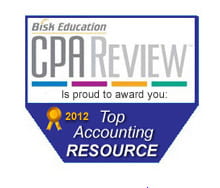Stocks To Watch In 2019
I was interviewed in this Smith Brain Trust (University of Maryland) article on the 2019 outlook for the economy and stocks.
THESE COMPANIES ARE POISED FOR EXCITEMENT IN 2019
SMITH BRAIN TRUST – Like the big man in the North Pole, Maryland Smith’s David Kass spends the waning weeks of the year making a list and checking it twice. Kass’ nice list is filled with the stocks he thinks are poised for a happy new year.
Kass, a clinical professor of finance at the University of Maryland’s Robert H. Smith School of Business, says he’s feeling a bit more cautious about his list this season. “There is one major headwind – trade policy – that when we spoke a year ago was not yet present,” he says. And it throws into question much of the economic picture for the United States and its major trading partners.
The trade talks, tariffs and counter tariffs being lobbed between Beijing and Washington carry with them substantial unintended consequences, Kass says.
The Trump administration is seeking to end the transfer of technology and reduce or eliminate tariffs imposed on U.S. goods entering China. It is also seeking to abolish a rule from Beijing that requires foreign companies to partner with a Chinese company if it wishes to operate in that country, and to end the forced transfer of technology from United States companies to their Chinese partners.
“Already we have seen collateral economic damage in this country as China has retaliated, imposing and threatening tariffs on our goods,” Kass says. “And this could escalate on both sides, slowing our economy, slowing China’s economy and slowing the world economy.”
Jobs, he says, can and will be lost.
With such a big economic cloud overhanging the economy, Kass says, any economic or stock market predictions have to hinge in large part on how much progress is made on U.S.-China trade.
“If there is major progress made over the course of the year, then I think our economy (GDP) can continue to grow as it has at least 2 percent a year, and I would expect the stock market to rise maybe 10 percent over where it is now,” he says.
However, he adds, if substantial progress isn’t made, a decline in the stock market is quite likely. “This is the main uncertainty.”
Typically, Kass says, the two main determinants of stock performance are interest rates and corporate profits. The Federal Reserve has suggested fewer increases to the federal funds rate in 2019, compared to 2018.
“The economic headwinds that would be created by interest rates for now appear of less a concern,” Kass says. “Unless the economy appears to begin overheating, which I don’t think it will. Or unless inflation takes off, which I don’t think it will.”
However, he adds, a complicating aspect of the ongoing trade dispute is this. Dueling tariffs lead to higher prices for consumers, which will factor into inflation rates. It will be up to the Federal Reserve to consider whether to discount the added price pressures as a temporary phenomenon resulting from the trade dispute (supply driven) or whether to view it as a more permanent price increase (demand driven), which may result in a monetary policy response – higher interest rates.
On his nice list this year are three of the five stocks that made his list last year. Plus, three more.
Berkshire Hathaway. It (BRK.A, BRK.B) has actually risen 6 percent, year to date, to outperform the S&P 500 over the same period.
Apple. Even though the stock has recently declined significantly, it’s still up about 5 percent on a year-to-date basis. Apple (AAPL) is Berkshire Hathaway’s largest portfolio holding, worth roughly $50 billion. The Cupertino-based giant recently issued lower estimates on how many iPhones the company would likely sell, but it remains a strong investment, Kass says, with a low price-to-earnings ratio of 15 on a trailing 12-month basis.
Bank of America. Bank of America (BAC) is Berkshire Hathaway’s second-biggest portfolio holding, worth about $25 billion, notes Kass, who has closely followed the investments and philosophy of Berkshire Hathaway CEO Warren Buffett for more than 35 years. Berkshire added about $6 billion in BofA stock to its portfolio in the third quarter of this year. “It’s trading at a low valuation,” Kass notes, with a price-to-earnings ratio of 12, and has a strong CEO in Brian Moynihan. “He has turned the bank around since the financial crisis,” Kass says. The modestly higher interest rate environment, he adds, would tend to be favorable for banks, delivering higher profit margins.
Microsoft. Fourth on his list is Microsoft (MSFT), a company that’s not in Berkshire Hathaway’s portfolio holdings. The company has shied away from the tech giant, in part because of Buffett’s close friendship with Microsoft founder Bill Gates. The Redmond, Wash.-based Microsoft recently leapfrogged Apple as the most valuable U.S. company, after an impressive year in the market. “The company is rapidly growing its cloud business and it has its subscription based Office 365, giving it an earnings stream that is recurring and consistent. And unlike Apple, it is not tied to a hardware product cycle. So it has a reliable growth story going forward,” Kass says. The downside? Microsoft is selling at a price-to-earnings ratio of 26, a bit high. “It might not be bargain priced, but it has highly visible growth opportunities.”
Stanley Black and Decker. Stanley Black and Decker (SWK) made Kass’ list this year in part because of CEO Jim Loree. “He came to campus recently for a CEO At Smith event, and I learned a lot about his company from his talk,” Kass says. “In particular, two points jumped out at me.” The first, he says, is that half of the company’s cash flow is being invested in acquisitions or capital expansion and the other half is being returned to shareholders in the form of dividends and stock buybacks. The second point, he says, was about the company’s recent acquisition of the Craftsman tools division from Sears. Loree noted that Sears had not been investing in marketing the product line, but that his company will and expects significant revenue growth from it. “It sounds like a substantial growth engine to me,” Kass says. Stanley Black and Decker’s price-to-earnings ratio 19.
StoneCo Ltd. Stone (STNE) is a financial technology company based in Brazil, the fourth-largest payment processor by volume in that country. Brazil is the fourth-largest market for non-cash transaction volumes in the world, which gives the company a lot of scope for growth. The fintech company caught Kass’ eye when Todd Combs of Berkshire Hathaway invested $340 million in the company’s initial public offering, buying about 11 percent of the company at roughly $24 a share. “And Berkshire hasn’t invested in an IPO in decades,” Kass says. The stock was trading recently below $20 a share, which means investors today can get an even better deal than Berkshire did.




No Responses
[…] Article by Dr. David Kass […]